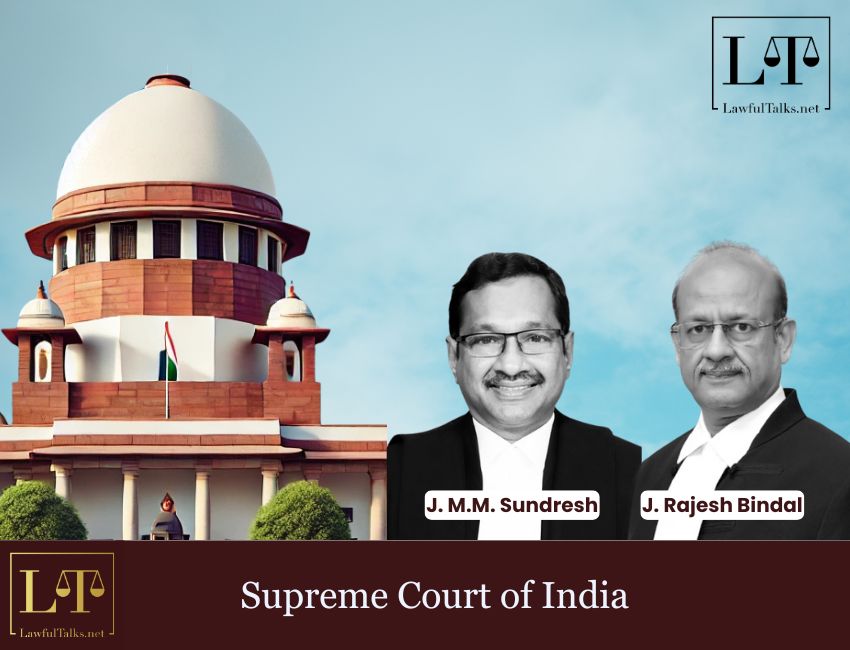Allahabad HC Sets Aside Afzal Ansari's Conviction, Allows Him to Continue as MP

The Supreme Court of India delivered a significant judgment on March 25, 2025 in the case of Ashish Kakkar v. UT of Chandigarh, making a crucial distinction between an arrest memo and the grounds of arrest. The bench comprising Justice M.M. Sundresh and Justice Rajesh Bindal ruled that merely providing an arrest memo does not fulfill the mandatory requirement of furnishing proper grounds of arrest under Section 50 of the Code of Criminal Procedure and Article 22(1) of the Constitution.

The Court observed that "upon perusing annexure P-3, we can see that what has been provided to the appellant is only an arrest memo in the prescribed format, which is meant to be given to the appellant by way of an intimation." This arrest memo merely contained basic details like the appellant's name and place of arrest, along with a vague reference to being arrested based on a co-accused's statement.
The Court emphatically stated that such minimal information cannot be considered as valid grounds of arrest, noting "we are in agreement with the submission made by the learned senior counsel appearing for the appellant that the said arrest memo cannot be construed as grounds of arrest, as no other worthwhile particulars have been furnished to him."
The judgment reinforced that Section 50 of CrPC is not a mere procedural formality but a substantive protection of personal liberty, declaring "this being a clear non-compliance of the mandate under Section 50 of the Code which has been introduced to give effect to Article 22(1) of the Constitution of India."
In reaching its decision, the Court relied on its earlier precedent in Prabir Purkayastha v. State, which had similarly emphasized the importance of proper communication of arrest grounds. The bench concluded that since the mandatory requirements were not met, both the arrest and subsequent remand order were legally unsustainable.
The Court, in conclusion ruled "the impugned judgment stands set aside and the arrest of the appellant followed by the consequential remand order are also set aside," directing that "the appellant shall be set at liberty, until and unless he is required in any other case."
Case Title: Ashish Kakkar v. UT of Chandigarh
Advocates for Petitioner- Siddharth Aggrawal, Ashish Batra, Gaurav Kakkar and Ors.
Advocates for Respondents- Bhuvan Kapoor, Varun Chugh, Shreekant Neelappa Terdal.





























































































































































































































































































































































































































































































































































































































































































































































